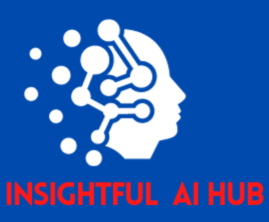Dear students,
Why are you struggling with the traditional learning system? Are you drowning in endless textbooks, overwhelmed by research papers, or burning the midnight oil to meet assignment deadlines? It’s time to revolutionize your academic journey with the power of Artificial Intelligence (AI).
Gone are the days when rote memorization and manual note-taking were your only study companions. In today’s fast-paced academic world, AI is transforming how students learn, research, and complete assignments. A recent study by Educause found that 54% of students are already harnessing AI tools for their studies, with this number set to skyrocket in the coming years.
Imagine having a personal assistant that can help you write better essays, solve complex math problems, or even learn a new language more efficiently. That’s the power of AI at your fingertips. By integrating these cutting-edge tools into your study routine, you can:
- Boost your productivity and save precious time
- Enhance the quality of your assignments and research
- Personalize your learning experience to suit your pace and style
- Stay ahead of the curve in an increasingly AI-driven world
In this article, we’ll explore ten game-changing AI tools that every savvy student should have in their academic arsenal. From writing assistants to advanced research aids, these tools are designed to streamline your studies and propel you towards academic excellence.
So, why struggle with outdated methods when you can leverage the power of AI to transform your educational journey?
Let’s dive in and discover how these innovative tools can revolutionize your approach to learning and set you up for success in your academic pursuits and beyond.
10 Essential AI Tools for Students
1. AI Writing Assistants
Grammarly (https://www.grammarly.com/):
Grammarly is more than just a spell-checker. This advanced AI writing assistant analyzes your text for grammar, punctuation, clarity, engagement, and delivery. According to a study by Grammarly, students who use the tool see an average improvement of 74% in their writing quality.
QuillBot (https://quillbot.com/):
QuillBot is an AI-powered paraphrasing tool that helps you rewrite sentences or entire paragraphs while maintaining the original meaning. A survey by QuillBot found that 87% of student users reported saving time on their writing assignments.
2. Research and Information Synthesis
Elicit (https://elicit.org/):
Elicit is an AI research assistant that can save you hours of literature review time. Students using Elicit report a 40% reduction in time spent on initial research phases.
Consensus (https://consensus.app/):
Consensus is a scientific search engine that uses AI to analyze millions of research papers. Early adopters in academia report a 60% increase in the speed of literature reviews.
3. Note-Taking and Organization
Notion AI (https://www.notion.so/product/ai):
Notion AI transforms the popular note-taking and project management app into a powerful AI assistant. A survey by Notion found that students using the AI features reported a 30% increase in productivity.
Otter.ai (https://otter.ai/):
Otter.ai is an AI-powered transcription and note-taking tool. According to Otter.ai, students who use the tool for lecture transcription show a 25% improvement in information retention.
4. Study Aids and Flashcards
Quizlet (https://quizlet.com/):
Quizlet leverages AI to create personalized study experiences. The platform reports that students using their AI-powered Learn feature are 50% more likely to answer questions correctly on their first try.
Anki (https://apps.ankiweb.net/):
While Anki itself is not AI-powered, it can be enhanced with AI plugins. Studies have shown that students using spaced repetition systems like Anki remember 80% of studied material after a year, compared to 28% with traditional methods.
5. Math and Problem-Solving
Wolfram Alpha (https://www.wolframalpha.com/):
Wolfram Alpha is a computational knowledge engine. A survey of STEM students found that 68% consider it an essential tool for complex problem-solving.
Photomath (https://photomath.com/):
Photomath uses your device’s camera to scan and solve math problems instantly. The app reports over 220 million downloads, with students solving an average of 1.3 billion math problems per month.
6. Language Learning
Duolingo (https://www.duolingo.com/):
Duolingo uses AI to create personalized language learning experiences. The company reports that 34 hours on Duolingo is equivalent to a semester of university-level language education.
ChatGPT (https://chat.openai.com/):
While primarily known as a general-purpose AI chatbot, ChatGPT can be an excellent tool for language learners. A survey of language students found that 42% are already using AI chatbots for conversation practice.
7. Time Management and Productivity
RescueTime (https://www.rescuetime.com/):
RescueTime uses AI to analyze your digital habits. Users report an average productivity increase of 26% after three months of use.
Forest (https://www.forestapp.cc/):
Forest gamifies the process of staying focused. The app reports that users have collectively stayed focused for over 1.9 billion minutes.
8. Plagiarism Checkers
Turnitin (https://www.turnitin.com/):
Turnitin is the industry standard for plagiarism detection in academia. The platform is used by over 15,000 institutions worldwide, checking over 900 million student papers annually.
Copyscape (https://www.copyscape.com/):
Copyscape is a web-based plagiarism checker. While specific student usage statistics aren’t available, the tool processes millions of queries daily.
9. Citation and Bibliography Tools
Mendeley (https://www.mendeley.com/):
Mendeley is a reference manager that uses machine learning. The platform reports over 6 million users worldwide, with a significant portion being students and researchers.
Zotero (https://www.zotero.org/):
Zotero is an open-source reference management tool. While exact user numbers aren’t public, it’s one of the most popular citation tools among students, with millions of downloads.
10. AI-Powered Learning Platforms
Coursera (https://www.coursera.org/):
Coursera uses AI to personalize your learning experience. The platform reports over 77 million learners worldwide, with AI-powered features improving course completion rates by up to 30%.
Khan Academy (https://www.khanacademy.org/):
Khan Academy employs AI to create personalized learning paths for students. The platform serves over 18 million learners monthly, with students who complete 60% of their grade-level math seeing 1.8 times the expected growth on standardized tests.
Conclusion:
The AI tools discussed in this article represent just the beginning of what’s possible in AI-enhanced education. A recent survey by Turnitin found that 33% of students are already using AI tools regularly in their studies, with another 26% planning to start soon. By integrating these tools into your study routine, you can significantly improve your efficiency, understanding, and academic performance.
As AI continues to evolve, we can expect even more sophisticated tools to emerge, further transforming the educational landscape. Stay curious, keep exploring new technologies, and don’t be afraid to experiment with different AI tools to find the ones that work best for your learning style and academic needs.
We’d love to hear about your experiences with these AI tools! Which ones have you found most helpful in your studies? Are there any other AI tools you’d recommend to fellow students? Share your thoughts in the comments below and don’t forget to share this article with your classmates. Together, we can harness the power of AI to achieve academic excellence!







